Baluch Rugs

A map of the Baluch dispersion near the border
between Afghanistan, Iran and Pakistan
Baluch people speak a language belonging to
western Iranian languages, sister to Kurdish,
although they live alongside south-eastern
natural borders of the Iranian plateau.
They are most likely descended from ancient
nomads whose great migration eastward
occurred during the rule of Sasanid Shahs and
they still continue a semi-nomadic life-style
in Iran, Pakistan and Afghanistan.
Baluchs have a great affection for ornaments.
Having an ancient grace, their embroideries
are used today as courtly fineries.

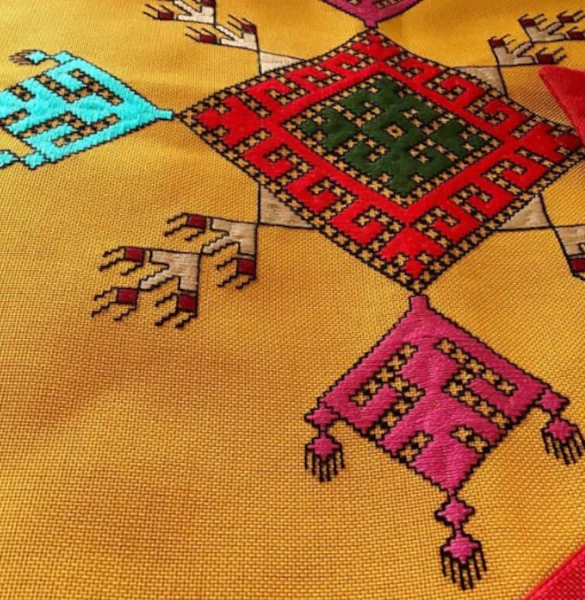
Needlework of Baluch
Needlework of Baluch
No matter a jeweled bridal gown or a woolen
rug, Baluch woman put the same charm in all
her hand-made pieces.
What we call Beloch, Baloch or Baluch rugs
are not made in the region of Baluchistan, but
in Khorasan province by dispersed subtribes
of Baluchs as well as some non-Baluch tribes
of the region whose weavers are deeply under
the influence of their Baluch neighbors.
Technical aspects and the structure of Baluch Rugs
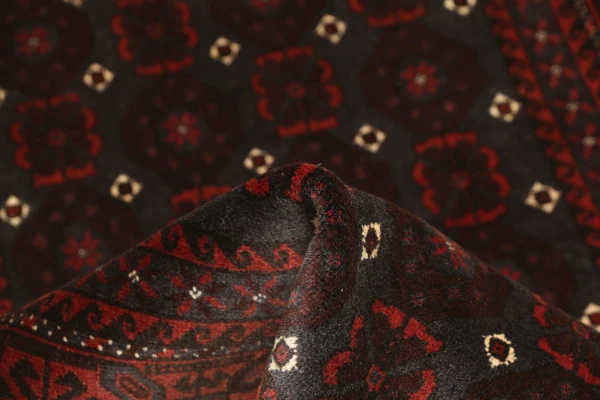
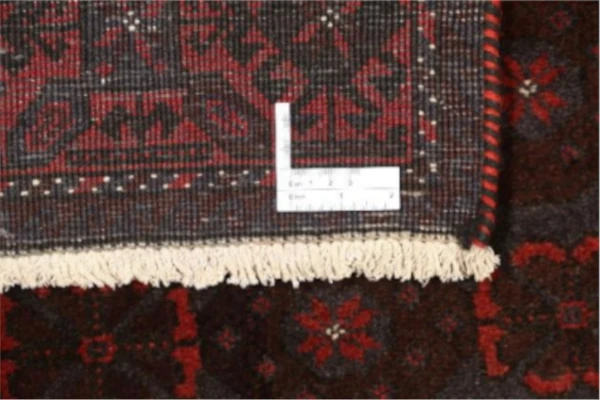
Knots are asymmetrical (Persian) in Baluch
carpets. Warps have been woolen
traditionally but cotton warps are also seen inrecent decades. Weft and pile are mostly
woolen. Both single-wefted and double-
wefted pieces are reported but the latter is
more likely.
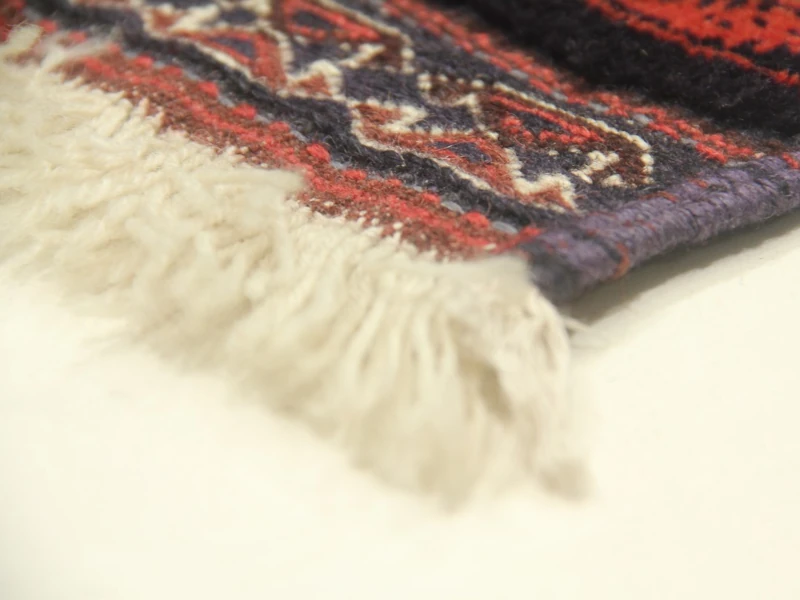
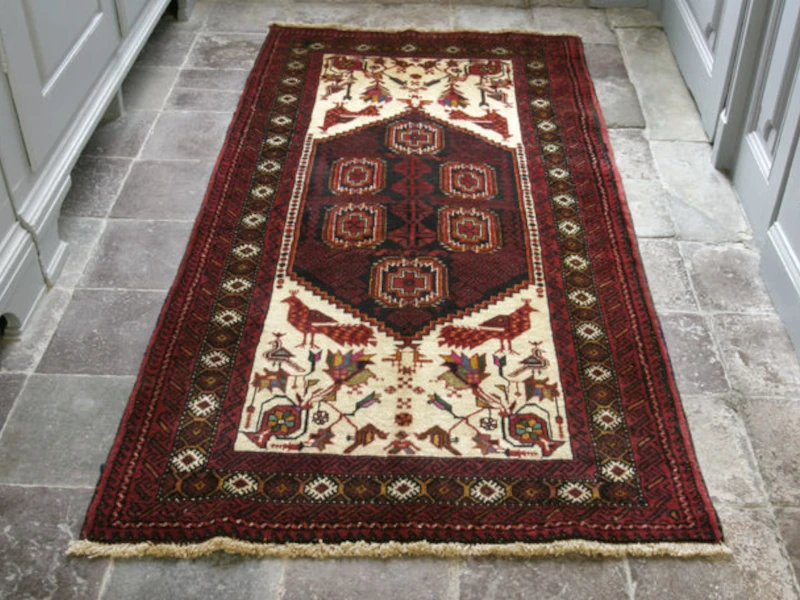
Silken pile is also possible for dowry carpets
indicating the deep affection of Baluchs for
grandeur and grace.
Rather wide goat-haired selvages are typical
and good clues to Baluch pieces.Area rugs are more favored than carpet sizes
due to the tribal nature of Baluch woven
pieces.
Dyeing and painting of Baluch rugs
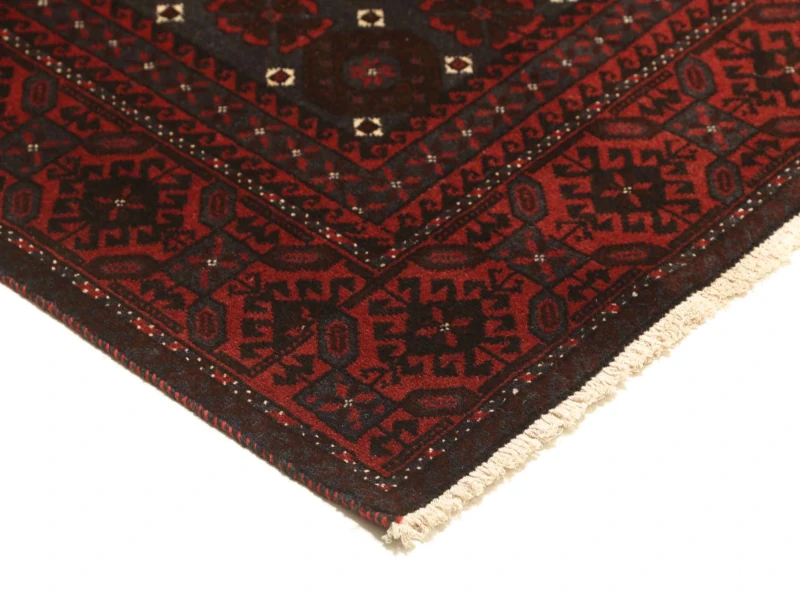
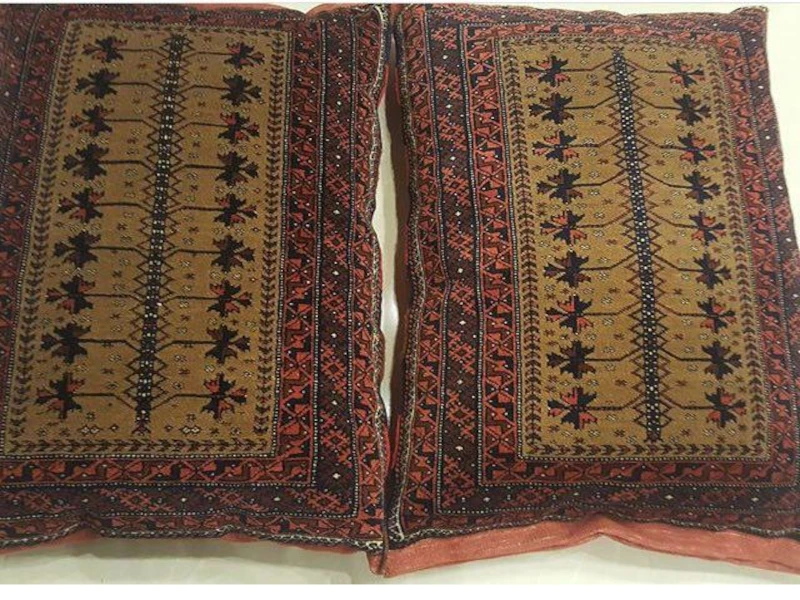
Dark shades are dominant on Baluch palette.
Midnight blue, brownish black, deep dark
red, dark reddish or purplish browns and dark
violet are the main colors out of which gleam
tinges of ivory, camel and jade.
Patterns are mostly outlined with black. For
camel they use undyed camel hair mainly in
prayer rugs. Different hues of red glow against each other
in repeating designs woven by Baluch tribes
of northeastern Khorasan.
Designs and patterns of the Baluch rugs
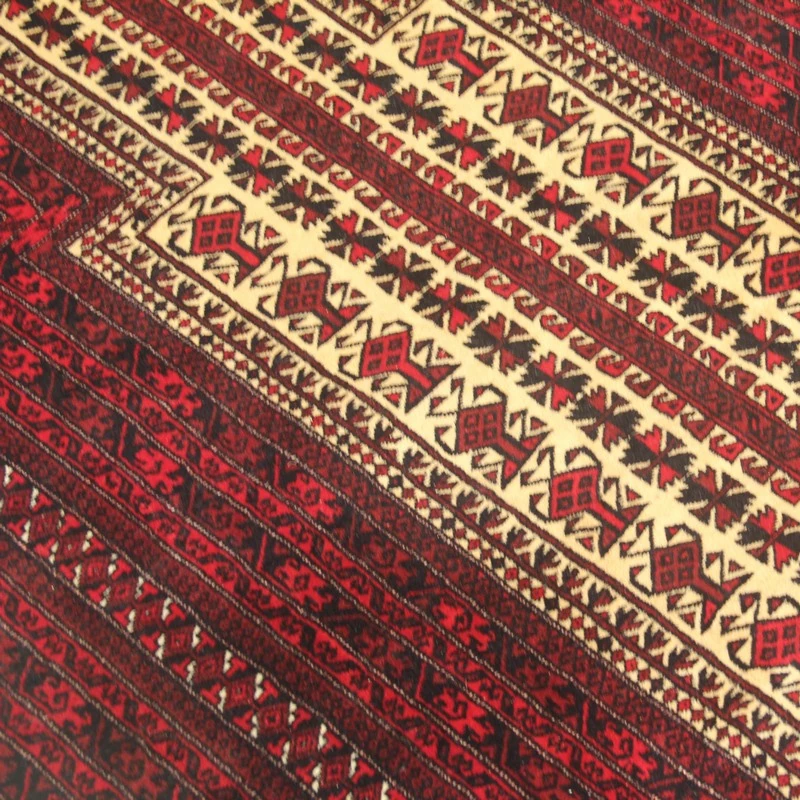
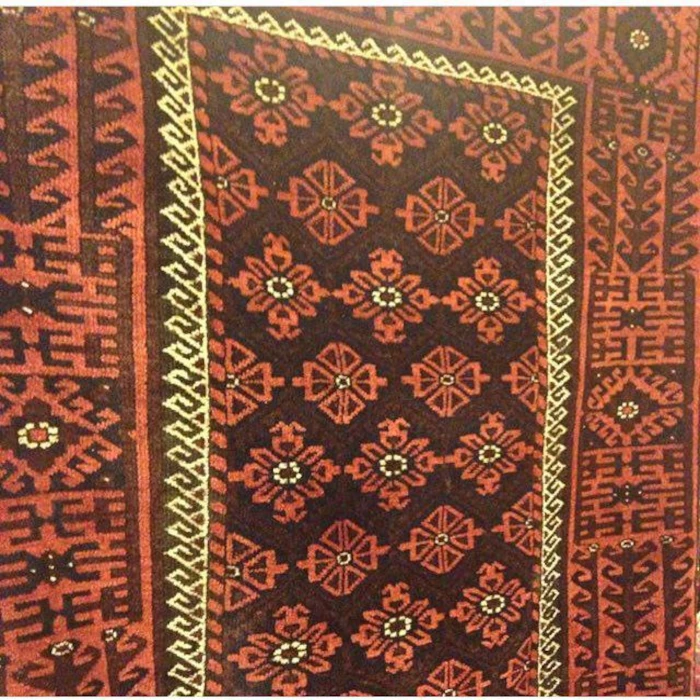
Geometric patterns are the gems of Baluch
designs, inlaid elaborately on all-over
designed or prayer rugs, with the same grace
you would see on a Baluch necklace. Variety of diamonds, rectangles, hexagons,
and octagons, geometric rosettes and tiny
hooked medallions are used as repeating or
alternating patterns.
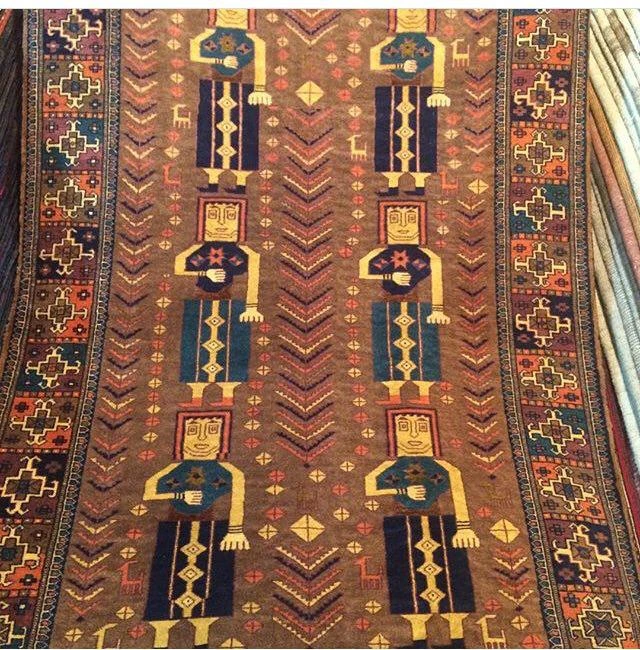
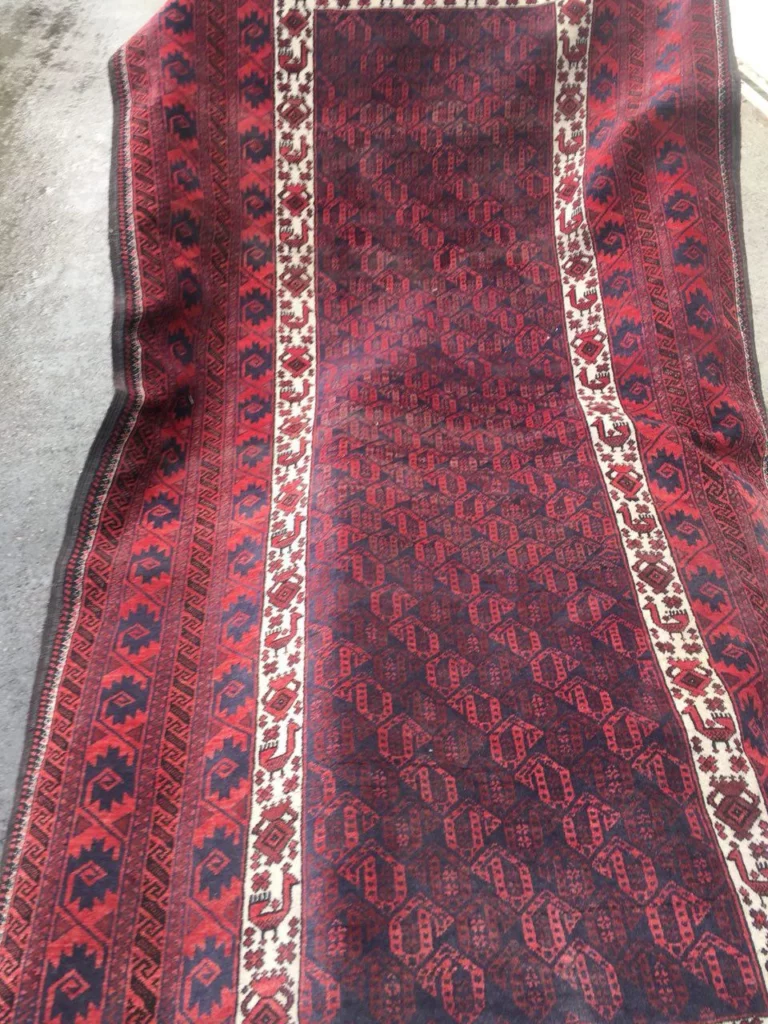
Each subtribe of Baluchs has its own
interpretation of prayer designs so you could
find a wide range of them.
All-over designs with repeating motifs are
favored on area rugs as well as on saddle-bags, sofra and other woven pieces (flat-
woven and piled ones).
A large number of Baluch subtribes dwelled
on a region between Mashhad and Herat (two
old cities of Khorasan) on both sides of Iran-
Afghanistan border. The goods woven by
these tribes indicate Turkmen and Kurmanj
influences but recognizing Baluch pieces is
not difficult: the shared patterns are arranged
more intricately on Baluch rugs.






